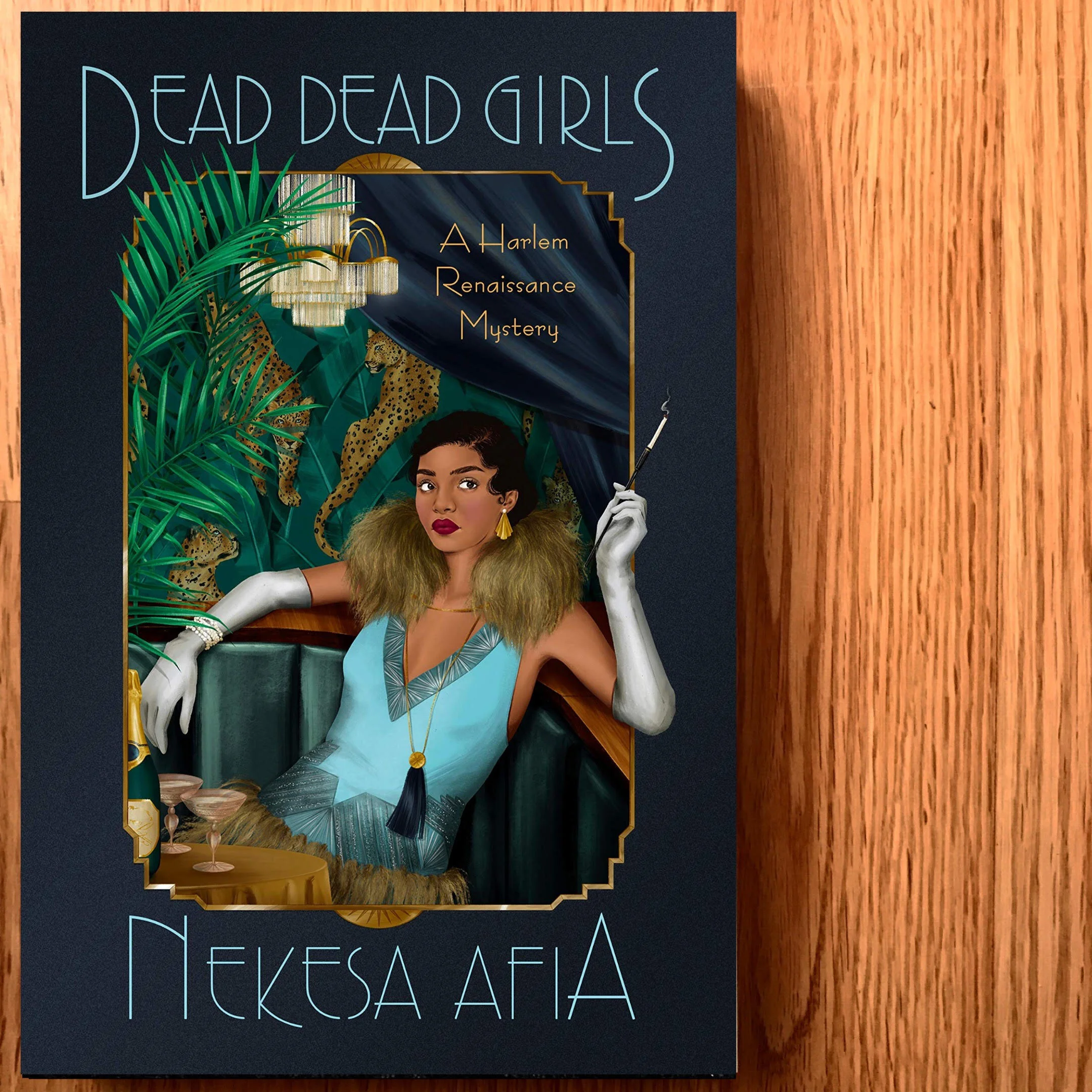By Meghan Mazzaferro
Content warning: murder, gore, violence, kidnapping, attempted rape, racism, racially motivated violence, racial slurs, homophobic slurs, physical abuse
Dead Dead Girls by Nekesa Afia explores the duality of the 1920s, contrasting the opulence of prohibition with the racial violence that permeated the period. Ten years prior, Louise Lloyd was abducted off the streets of Harlem and held in a basement with three other teenage girls. After fighting off her abductor and getting herself and the other captives to safety, Louise is dubbed Harlem’s Hero, a mantle she has been fighting to escape for the last ten years. Instead, she pours her time into simple pleasures like working a waitressing job at a quiet coffee shop and dancing at Harlem’s hottest speakeasy with her girlfriend. But when young girls start turning up dead, Louise makes a drunken mistake and finds herself forced to aid the police as they race to catch a serial killer targeting young Black girls working for the city’s most notorious gangster.
I’ll begin this review bluntly: this book was not for me. While a historical murder mystery is not typically my genre, I was very intrigued by the premise and was excited to immerse myself in 1920s Harlem to follow Louise on her investigation. The concept of this book is really promising; however, the execution failed for me. The prose in this novel is underwhelming. Many of the sentences begin with repetitive words and phrases, sentence lengths are short and choppy, and chapters are short with jarring transitions between scenes. The attempt, I believe, is to create a feeling of heightened suspense for the reader, which fell flat for me, unfortunately, and it felt in many instances that this book was telling rather than showing.
Likewise, Afia’s writing style failed to set the scene for me, and I had difficulty connecting with any of the settings or characters in this book, as I felt they were under-described. I had some issues with the plot of this novel as well, as I found the actual investigation to be somewhat lackluster. Unfortunately, the story simply failed to capture my interest, and Afia’s writing style didn’t work for me.
However, I do feel that this book needs to be commended for its representation. Louise, the book’s protagonist, is Black and queer, as are her friends, and the book spends a great deal of time exploring the ways in which marginalized communities in this period were victimized, with Louise seeing herself in the serial killer’s victims. Afia’s author’s note states that this book could have taken place in modern society strikes a chord with readers who have just read a story filled with racism, gendered violence, and bigotry that one wants to believe we have left in the past, but which are all still present in the world today. The times where I felt this book worked best were when Louise was examining her place and the place of the dead girls in society, pondering the prejudices against Black people, women, impoverished communities, and same-sex relationships that allowed for her and girls like her to fall victims to brutal violence.
As I said at the beginning of this review, this book was not for me. However, I am grateful I had the opportunity to read it as I feel the statements it made are important, even if the execution fell short. While I personally did not enjoy this book, I do feel like it has an audience: fans of historical mysteries with a fondness for fast-paced writing and an introspective protagonist who aren’t overly critical of writing style.
Thank you to Berkley Publishers at Penguin Random House for a copy of Dead Dead Girls in exchange for an honest review.

